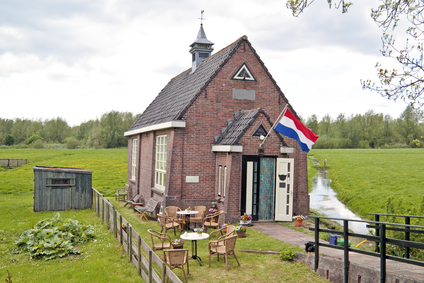Christianity has fostered much in the way of scientific progress

 Science and faith are not on the opposite side of the fence and Christians are responsible for many scientific breakthroughs, says Rob Mutsaerts, the auxiliary bishop of the diocese of ‘s Hertogenbosch.
Science and faith are not on the opposite side of the fence and Christians are responsible for many scientific breakthroughs, says Rob Mutsaerts, the auxiliary bishop of the diocese of ‘s Hertogenbosch.
Richard Dawkins, advocate of scientific and rational thought, is calling on everyone, and people of faith in particular, to think for themselves. People who believe in God do not think for themselves, he claims, and are cowardly and lazy to boot.
Perhaps this is a good time to remind him that Thomas of Aquino promoted Aristotle, that devout priest Copernicus was a mathematician and astronomer who formulated a heliocentric model and that Gregor Mendel, a monk, studied heredity and as such can be considered a precursor of Darwin.
Newton, Kepler, Descartes and Pascal, devout Christians all, were the founders of modern science. And what to make of 19th century physicists Faraday, Maxwell and the man who proposed the big bang theory, a priest called Lemaître? And what about religious scientists such as C.S. Lewis and G.K. Chesterton?
Christian Europe
The modern sciences originated in Christian milieus, in Christian Europe, in the very place where people believed in a world created by god which, by its nature, was open to reason and thus worth exploring. Catholicism is not an enemy to science, as Dawkins has it, and has never tended to defend itself from its claims.
The church has always held that because creation springs from the one creator, there can be no conflict between the biblically revealed truth and the truth that we discover with our brain. Whatever the findings of empirical science, they will not give rise to a conflict with faith. The so-called battle between science and faith is an imaginary one.
The brilliant atheist Bernard Shaw directly opposed Dawkins. Shaw said he could never be a Catholic because of its extreme rationalism. He had a sense of humour – ‘I’m an atheist and I thank God for it’- something that Dawkins clearly lacks. Shaw was right: the Catholic Church has never said that reason was not the right way to know reality, or that people have the right to approach anything in an unreasoned way.
Nothing
Darwin is a proponent of scientism: the supposition that reality is limited to what can be empirically perceived. The success of the natural sciences (manifest in the technology we encounter every day and which makes our lives easier in many ways) has convinced many that outside of the visible and measurable world there is nothing – only imaginings, superstition and primitive beliefs.
Materialists like Dawkins refuse to contemplate that outside of the empirical there are other dimensions of reality which manifest themselves in a non-scientific and yet rational way. They form the blind spots that scientism has for literature, philosophy, metaphysics and religion.
Faith is not science. It has a much closer affinity with philosophy, poetry and literature. Does it have an aesthetic dimension? Certainly. Does it have a literary component? Certainly. But it is also a vehicle for truth.
Scientism, which rules all this out, is also excluding the riches of human knowledge. It also contradicts itself. Its tenet that science is the only way to access knowledge cannot be empirically established. It is a philosophical statement. And philosophy, scientism claims, is not a vehicle for truth.
Accidental universe
Dawkins also maintains that the aimlessness of human existence does not make it meaningless or worthless but that it is a gift to live in this accidental universe. Jean-Paul Sartre and Albert Camus were equally convinced there is no God but concluded that this made life empty and meaningless.
In their view an atheist could come to no other conclusion. They experienced a longing for meaning and fulfilment but could find nothing in this world that would satisfy it, hence their conviction that life was absurd and freedom an empty shell.
I don’t agree with Sartre and Camus that there is no god but they did at least apply logic. Existentialists would never say: God doesn’t exist but don’t worry, you can do without. Atheists would have a point if it were true that religious people see God as an invisible friend and religion were a question of unrealistic wishful thinking.
If that was the case I would be an atheist. But our atheistic friends would be totally wrong in thinking that believing in a reality beyond our perception is childish and damaging to human dignity. It is a curious prejudice to label only the empirical as ‘real’.
Rob Mutsaerts is auxiliary bishop at the diocese of ‘s-Hertogenbosch.
This article was published earlier in the Volkskrant
Thank you for donating to DutchNews.nl.
We could not provide the Dutch News service, and keep it free of charge, without the generous support of our readers. Your donations allow us to report on issues you tell us matter, and provide you with a summary of the most important Dutch news each day.
Make a donation